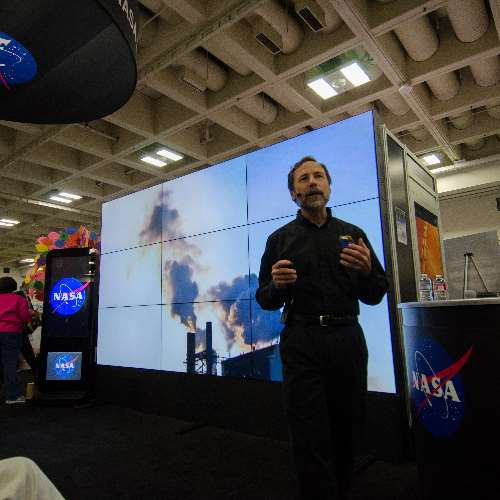
Member Since 1983
Dave Crisp
Owner, CEO, Crisp Spectra LLC
Dr. David Crisp is an atmospheric physicist. Prior to his retirement from the NASA Jet Propulsion Laboratory (JPL), California Institute of Technology, he served as the Science Team Leader for NASA’s Orbiting Carbon Observatory-2 (OCO-2) and Orbiting Carbon Observatory-3 (OCO-3) missions. He is continuing to work with the carbon cycle and climate communities as the CEO of Crisp Spectra LLC, a science consulting firm.
Professional Experience
Crisp Spectra LLC
Owner, CEO
2022 - Present
Crisp Spectra LLC
CEO
2022 - 2023
NASA Jet Propulsion Laboratory
Senior Research Scientist
1984 - 2022
Show All Professional Experience
Show Less Professional Experience
Education
Princeton University
Doctorate
1984
Honors & Awards
Union Fellow
Received December 2023
Citation
For leading an effective response to global climate change, and for significant advances in radiative transfer modeling and remote sensing techniques
See Details
Close Details
AGU Abstracts
Space-based Greenhouse Gas Measurements for Carbon Cycle Science and Policy Applications
REMOTE SENSING OF CH<SUB>4</SUB> AND CO<SUB>2</SUB> FROM SPACE: THE EXPANDING OBSERVING SYSTEM III ORAL
atmospheric sciences | 10 december 2024
David Crisp, Hiroshi Suto, Osamu Ochiai
Fossil fuel use, land use and other human activities have increased the atmospheric CO2 concentration by ~50% since the beginning of the industrial ag...
View Abstract
The Diabatic Circulation of the Venus Mesosphere
VENUS IN THE NEXT DECADE II ORAL
planetary sciences | 10 december 2024
TingJuan Liao, David Crisp, Christopher D. Parkins...
The Venus mesosphere (~60 100 km) is bounded below by the massive, cloudy, super-rotating troposphere and above by the thermosphere/cryosphere. In sp...
View Abstract
Taking Stock of Stocks: A Community-driven Roadmap for More Effective Assessment of Carbon Stocks
THE GLOBAL CARBON CYCLE AND ITS FEEDBACKS WITH ANTHROPOGENIC CHANGE II ORAL
biogeosciences | 09 december 2024
Dustin Carroll, Nicholas Parazoo, James T. Randers...
The Paris Agreement calls for stabilizing climate at 1.5°C warming, requiring rapid reductions in emissions and careful management of land and oc...
View Abstract


